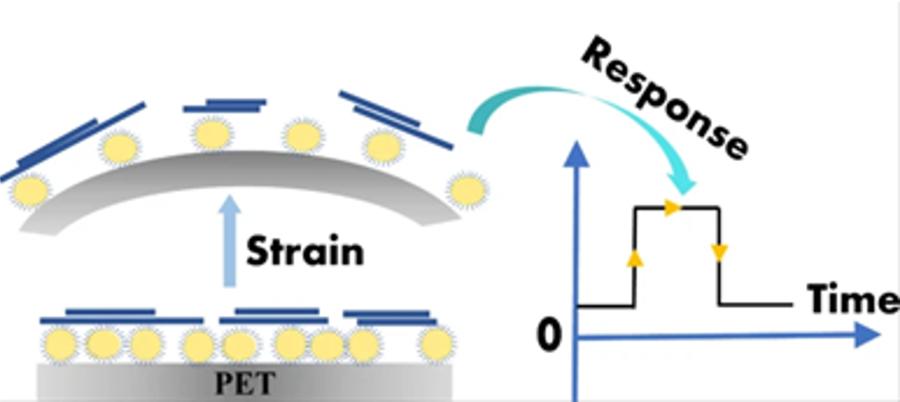MSc thesis project proposal
Nanoparticle thin film-based strain sensor
Flexible strain sensors are experiencing rapidly growing demand across various fields, including wearable healthcare devices, structural health monitoring, equipment health diagnostics in industries, and soft robotics. Nanoparticle-based strain sensors operate by leveraging the variations in interparticle distance within a thin film when subjected to mechanical strain. Depending on the bending direction, this causes the electrical properties of the material to vary, providing an electrical response that corresponds to the applied strain.
A highly promising method for synthesizing nanoparticles is spark discharge, which utilizes electrodes of the desired material to generate pure nanoparticles (NPs) which are later transferred onto the desired substrate by impaction printing. This process has the ability to prepare NP thin films films with controllable porous properties.
Key benefits:
- On-demand printing
- No chemical footprint
- High control on particle size
- Operates at room temperature and pressure
Assignment
- Review on nanoparticle-based strain sensors and select flexible substrate and sensing material
- Utilize spark ablation to study the influence of NP size, distribution and thin film thickness on sensor performance
- Perform material characterization studies, e.g., SEM, AFM, XRD, etc.
- Fabricate and characterize the flexible NP thin film-based strain sensor
Requirements
You are an ambitious master student with a background in any one of these fields - engineering, physics, or material science. You have a good understanding of micro-fabrication and electrical characterization techniques. You are a team player as well as an independent researcher. You have good communication skills in English.
Contact
MSc Shatavisha Biswas
Electronic Components, Technology and Materials Group
Department of Microelectronics
Last modified: 2025-02-19
